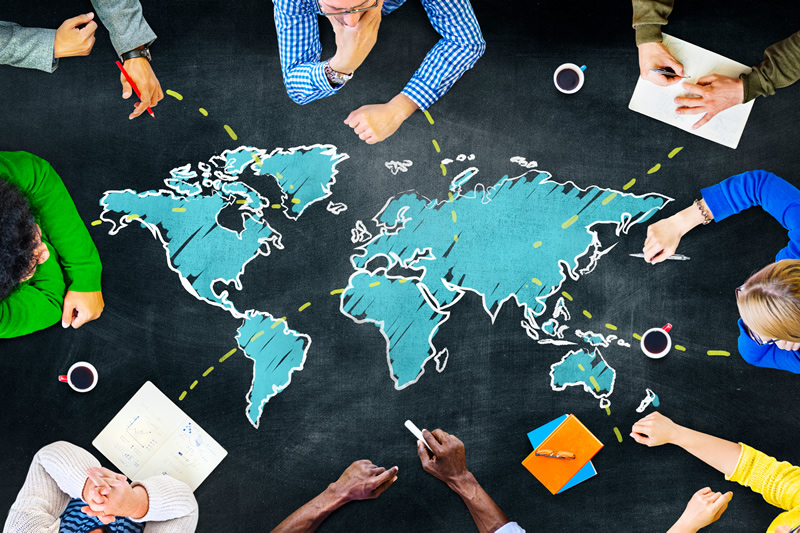The highly interconnected global economy requires manufacturing companies to increasingly look beyond their domestic markets to capitalize on opportunities abroad. As they navigate the complexities of international commerce, the role of translation in their marketing strategies becomes not just beneficial but essential. This examination delves into the multifaceted importance of translation in global manufacturing marketing, addressing communication efficiency, brand perception, legal compliance, market adaptation, and strategic partnerships.
Enhancing Communication in Global Markets
Effective communication is the cornerstone of successful marketing, and in international markets, this means overcoming language barriers. Translation enables manufacturers to convey their product’s value proposition, features, and benefits in the language of their target audience, which is crucial for gaining market entry and acceptance. For example, a U.S.-based manufacturer of medical devices aiming to enter the Latin American market must ensure that all its product information, instructions, and marketing materials are accurately translated into Spanish and Portuguese. This linguistic adaptation goes beyond mere translation; it involves understanding and integrating cultural nuances to ensure the message is relevant and appealing to the local market.
Bolstering Brand Image and Global Reach
A consistent and accurately translated message reinforces a brand’s image and aids in building a global identity. High-quality translation enhances the brand’s reliability and trustworthiness among international customers, who may perceive the effort put into translation as a commitment to their needs and preferences. This can lead to increased customer loyalty and a stronger global presence. On the other hand, poor translation can lead to brand damage. A famous example is when a major automotive brand’s car model name was translated to an inappropriate term in a foreign language, negatively impacting the brand’s image in that market.
Navigating Legal and Regulatory Landscapes
In the manufacturing sector, compliance with local laws and industry-specific regulations is non-negotiable. Translating legal and regulatory documents accurately is required to avoid legal repercussions, including fines, sanctions, or even operational bans in foreign markets. For instance, safety standards and product compliance documents must be meticulously translated to ensure they align with the local legal requirements, which can vary significantly from one country to another. This precision in translation helps manufacturers avoid costly legal disputes and maintain a compliant and respectable business operation internationally.
Adapting to Market Specifics through Localization
Translation in manufacturing marketing goes beyond literal language conversion; it encompasses localization, which adjusts the product and communication strategy to fit the cultural and societal norms of the target market. Localization involves adapting units of measure, idiomatic expressions, and visual elements to resonate with local consumers. For example, a manufacturer of kitchen appliances may need to adapt the product’s features, usage instructions, and promotional materials to reflect the cooking habits, kitchen sizes, and power supply norms of the target country.
Facilitating International Partnerships
Manufacturing often involves complex international partnerships and collaborations. Translation enables clear and effective communication across different languages and cultures, which is essential for maintaining strong business relationships. For instance, when negotiating contracts with foreign suppliers or partners, precise translation of legal terms and business conditions is crucial to ensure mutual understanding and agreement. Moreover, ongoing communication, such as email exchanges, technical discussions, and project updates, requires accurate and timely translation to avoid misunderstandings and foster smooth collaboration.
Strategic Integration in Global Marketing Plans
Incorporating translation into the core of global marketing strategies allows manufacturing companies to approach international markets strategically. This involves not only translating content but also aligning the marketing campaigns with the cultural, economic, and social dynamics of each region. Strategic translation considers market-specific consumer behavior, competitive landscape, and local trends, enabling manufacturers to tailor their approach effectively and maximize their market potential.
Recapping
Translation is indispensable in the intricate ecosystem of global marketing for manufacturing. It transcends basic language conversion, embedding itself as a strategic tool that enhances communication, bolsters brand image, navigates legal complexities, adapts to local markets, and facilitates international partnerships. For manufacturing companies eyeing global expansion, investing in comprehensive and culturally nuanced translation services from providers like Powerling and TrueLanguage is not just an operational necessity but a strategic imperative that can define their international success and sustainability.


